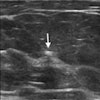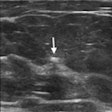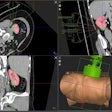
Royal Philips, the parent of Philips Healthcare, is promoting the use of its SyncVision image-guidance platform in a study presented at the recent American College of Cardiology's (ACC) meeting in New Orleans.
In the Define percutaneous coronary intervention (PCI) study, researchers from the U.S. and the U.K. found that the conventional PCI technique of using x-ray guidance to deploy a catheter and coronary stent did not fully restore blood flow in 81.6% of patients who underwent the procedure. Additional analysis of the data revealed that proper identification of the ischemia before placing the stent would have reduced this complication rate to 5%.
The researchers turned to the instantaneous wave-free ratio (iFR) co-registration feature of Philips' SyncVision image-guidance platform to map onto an angiogram the pressure profile of the entire blood vessel affected by ischemia. This alternative technique may allow for a more precise identification of ischemias and subsequent stent placement -- potentially reducing costs and improving outcomes, according to Philips.
"The findings from the Define PCI study reveal an opportunity for physicians to optimize procedural results and potentially help more people fully benefit from PCI," principal investigator Dr. Allen Jeremias said in a prepared statement.


















